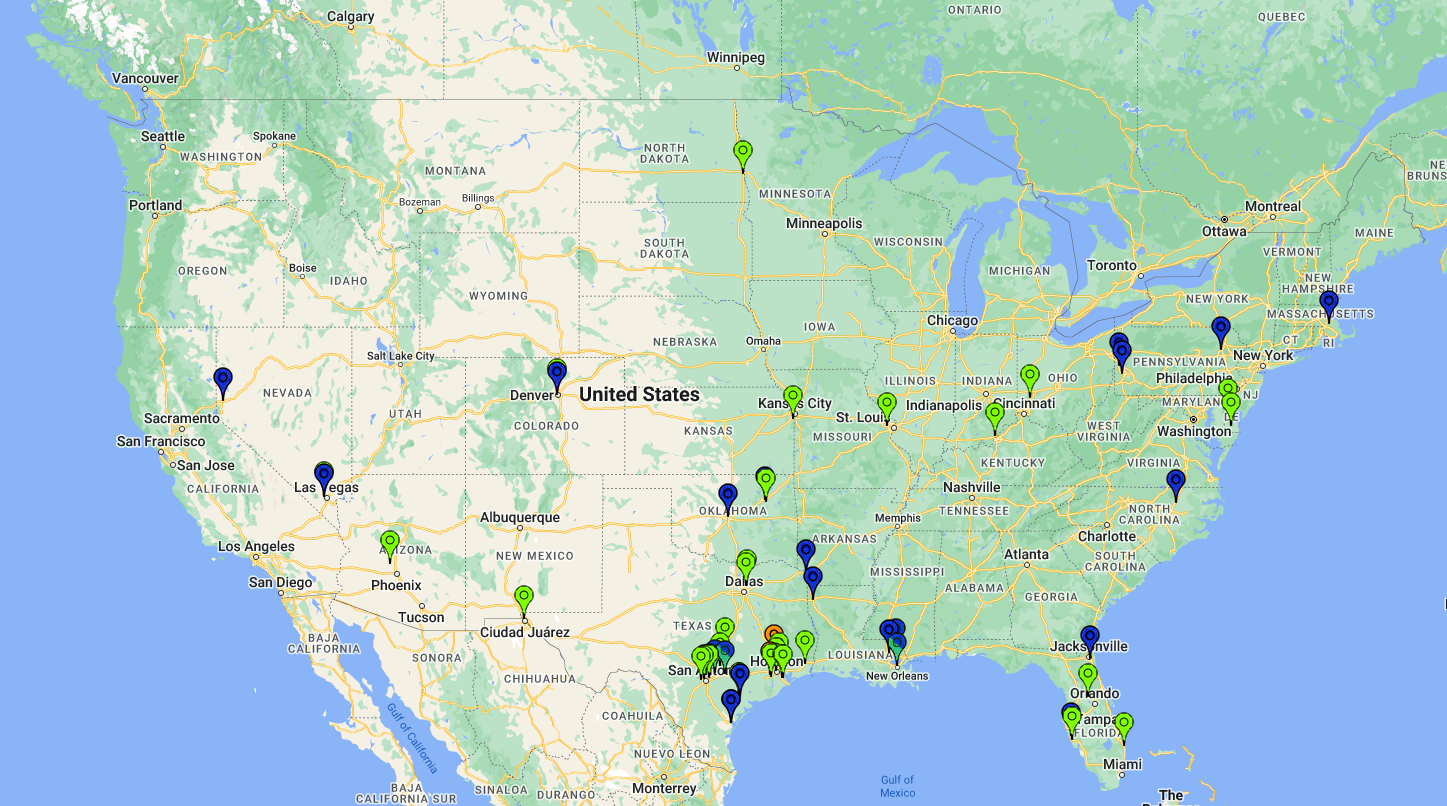Understanding and Controlling High Blood Pressure: The Silent Killer
Chances are you know someone who has high blood pressure or could even have it yourself. High blood pressure affects half the adult population in the United States. However, not everyone knows they have it until it is too late. For this reason, many medical professionals call high blood pressure the “silent killer” because it can put those with it at risk for heart disease, stroke, and other dangerous medical conditions. (American Heart Association, 2023)
Know Your Numbers: Understanding Blood Pressure Readings
By definition, blood pressure is the amount of force exerted by your blood as it flows through your blood vessels. When it is too high, it means your heart and blood vessels are having to work even harder, which makes them less efficient and creates greater wear and tear. (American Heart Association, 2023)
Stages of High Blood Pressure:
Stages of blood pressure and ranges include:

If you have high blood pressure, your doctor may recommend that you take regular readings at home using a home blood pressure monitor. They may also ask you to keep a record of your blood pressure readings to help identify trends and know when to seek medical attention. If your systolic pressure is higher than 180 and/or your diastolic is higher than 120, you should get help immediately. When your blood pressure reaches this level, you may also experience symptoms of lightheadedness, chest pains or symptoms of stroke. (WebMD Editorial Contributors, 2023)
Find a PAM Health Outpatient Center Near You
Risk Factors for High Blood Pressure: Beyond Lifestyle Choices
Some people may eat a healthy diet and do everything “right” but still find themselves battling high blood pressure. That is, although lifestyle is a major contributor, genetics and age can also contribute to the likelihood of developing this condition.
Other risk factors include:
- Diabetes
- Obesity
- Diet high in sodium
- Poor cardiovascular fitness
- Smoking
- Excessive alcohol use
- Advanced age
(Centers for Disease Control and Prevention, 2023)
Lifestyle Tips for Managing High Blood Pressure
Lifestyle changes to help lower high blood pressure or reduce your risk of developing it include:
- Reducing sodium (salt) intake
- Eating more potassium-rich foods (bananas)
- Following DASH diet – Dietary Approaches to Stop Hypertension (NHLBI, 2021)
- Good – fruit, vegetables, whole grains, low-fat foods, low-sodium foods, nuts
- Bad – Food high in saturated fats, excessive sugar and salt intake
- Managing stress using techniques like meditation, yoga, deep breathing, etc.
- Exercising regularly – cardio, strength training, flexibility exercises
- Quitting smoking
Medications for High Blood Pressure: Classes and Their Effects
Your doctor may also prescribe medication to manage high blood pressure. According to the American Heart Association, there are nine classes of blood pressure medication. Many of these drugs are designed to help keep the blood vessels open and to reduce the heart’s workload. Drug classes include:
- Diuretics – help eliminate extra salt and water
- Beta-blockers – reduce the heart rate, so their heart is not working as hard
- Angiotensin-converting enzyme inhibitors (ACE inhibitors) – reduce body’s production of a chemical that causes the arteries to narrow
- Angiotensin II receptor blockers (ARBs) – help keep blood vessels open
- Calcium channel blockers – prevent calcium from going into the muscle cells of the heart and arteries
- Alpha blockers – reduce arteries’ resistance
- Central alpha-2 receptor agonists and other centrally acting drugs – decrease the activity of the sympathetic part of the involuntary nervous system
- Combined alpha and beta blockers – used in a high-risk situations, often are given as an IV drip
- Blood vessel dilators (vasodilators) – widen/relax blood vessels
These drugs may be used in conjunction with one another or alone. Each medication also has its own set of side effects. (American Heart Association, 2023)
The Good News: Preventing and Reversing High Blood Pressure
By being aware of your risks for high blood pressure, you can monitor your health and take steps to prevent high blood pressure or lower your blood pressure. Some people have even been able to stop taking medication by controlling modifiable risk factors like diet and exercise. However, you should never make the decision to stop taking any prescribed medication without first talking to your physician. (Craig O. Weber, 2023)
Browse our portfolio of Specialty Hospitals, Rehabilitation Hospitals, and Outpatient Services.
Find A Location
Bibliography
American Heart Association. (2023, May 31). The Facts About High Blood Pressure. Retrieved from American Heart Association: https://www.heart.org/en/health-topics/high-blood-pressure/the-facts-about-high-blood-pressure
American Heart Association. (2023, June 7). Types of Blood Pressure Medications. Retrieved from American Heart Association: https://www.heart.org/en/health-topics/high-blood-pressure/changes-you-can-make-to-manage-high-blood-pressure/types-of-blood-pressure-medications
American Heart Association. (2023, May 25). What Is High Blood Pressure. Retrieved from American Heart Association: https://www.heart.org/en/health-topics/high-blood-pressure/the-facts-about-high-blood-pressure/what-is-high-blood-pressure
Centers for Disease Control and Prevention. (2023, March 17). Know Your Risk for High Blood Pressure. Retrieved from CDC: https://www.cdc.gov/bloodpressure/risk_factors.htm
Craig O. Weber, M. (2023, April 3). Once You Start Blood Pressure Medication, Can You Stop? Retrieved from verywell health: https://www.verywellhealth.com/when-can-i-stop-my-meds-high-blood-pressure-1763996
NHLBI. (2021, December 29). DASH Eating Plan. Retrieved from National Heart, Lung, and Blood Institute: https://www.nhlbi.nih.gov/education/dash-eating-plan
WebMD Editorial Contributors. (2023, June 30). When to Call Your Doctor About High Blood Pressure. Retrieved from WebMD: https://www.webmd.com/hypertension-high-blood-pressure/hypertension-when-call-your-doctor